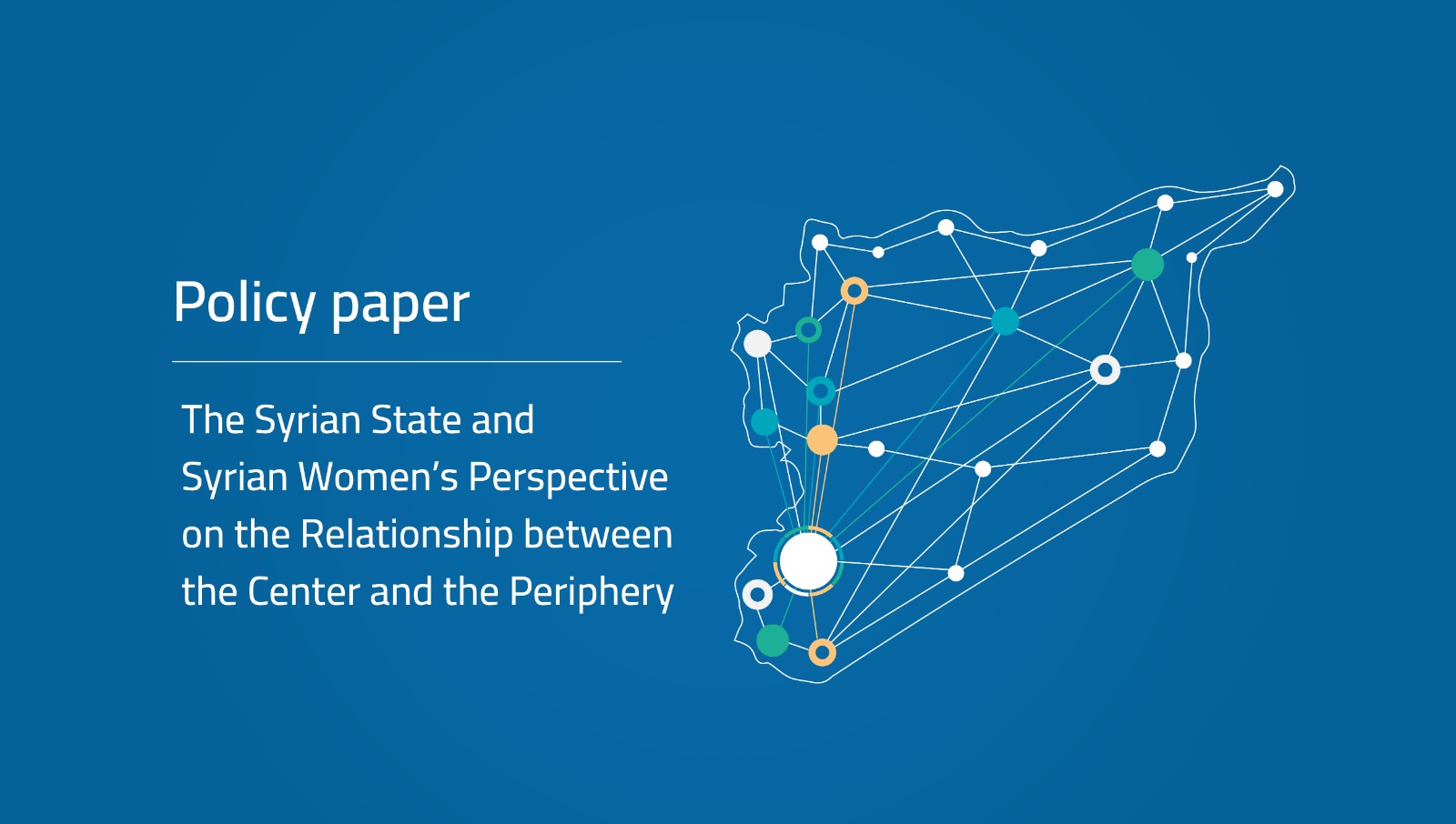Policy Paper-The Syrian State and Syrian Women’s Perspective on the Relationship between the Center and the Periphery
- updated: May 4, 2023
- |
It is important to survey the opinions of Syrian women regarding the system of governance in Syria in the future and the relationship between the center and the periphery (i.e., localities), and the distribution of powers between them. This is relevant to political reform, determining the form of governance, and the need to define the relationship between the central government and the localities in the constitution. Studies indicate that a greater degree of decentralization in governance is linked to more inclusive political representation and development in marginalized areas. However, the way powers are transferred or devolved is actually implemented on the ground largely determines how decisions are made concerning spending, tax collection, appointment and dismissal of high-ranking officials, and many other important procedures.
Before 2011, Syria was a highly centralized system politically, economically, and administratively. Despite the fact that a new Local Administration Law was promulgated in 2011 and that the 2012 Syrian Constitution stipulates decentralization, nevertheless in practice things remain highly centralized.
It is vital to debate the system of governance in Syria in the future, and that is why the Syrian Women’s Political Movement (SWPM) released a policy paper entitled: “The Syrian State and Syrian Women’s Perspective on the Relationship between the Center and the Periphery”, after it held, in August 2022, twelve focus group discussion sessions for Syrian women who reside inside Syria: in regime-controlled areas, in opposition-controlled areas, and in the areas under the control of the Autonomous Administration of North and East Syria (AANES). The participants are from various cultural, religious, and ethnic groups, and many of them had previous experiences working with local administrations and councils in different areas of Syria.
The sessions covered many issues, including the future system of governance in Syria, especially regarding the powers and responsibilities of the central government and the local authorities in the localities. These sessions were not dedicated to discussing one specific subject or issue in detail, but were meant to explore the participants’ opinions to get women’s perspectives on the future governance system in Syria and formulate a vision for preliminary general features on this issue.
